Figure 1
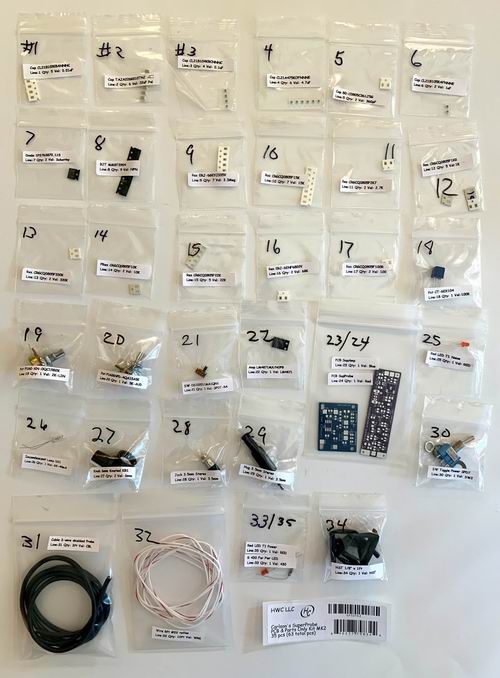 Figure 2
Figure 2
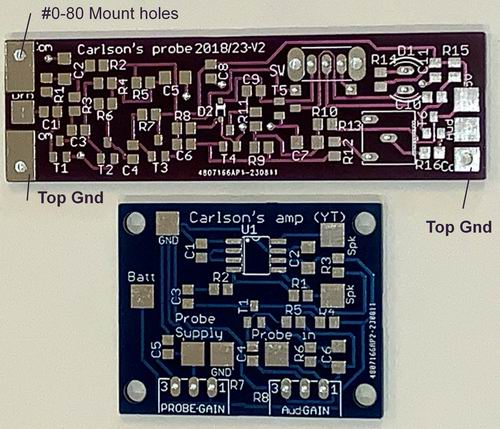 Figure 3
Figure 3
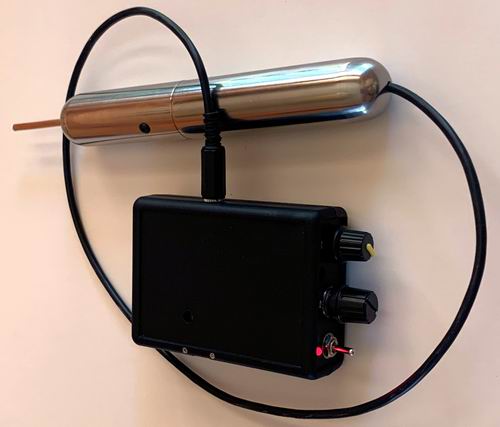 Figure 4
Figure 4
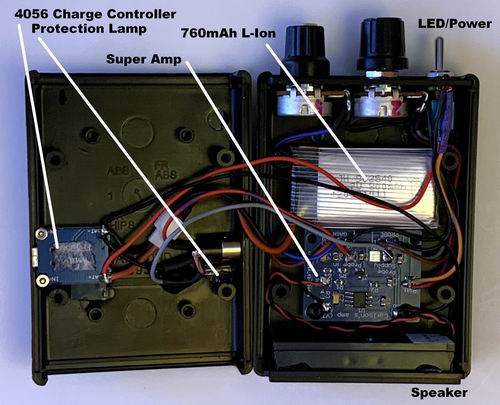 Figure 5
Figure 5
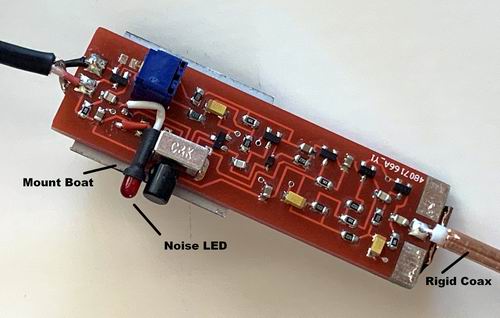
|
Improved MK2 Kit with 35 Unique Parts
As seen on YouTube and commented on many other sites, Paul Carlson designed a very useful non-contact
very high gain electronic probe for investigating just about any kind of electrical signal from audio to RF.
The design is well proven and open-sourced. There are also several open-source PCB designs for the probe and
amplifier, but most of them are SMD designs. This is likely the primary barrier to building a one-off
implementation of this design.
To address this, we used an open-source version of the PCB design by Yannick99 at www.instructables.com.
These 2 PCBs are well designed and reliable, and used in many DIY probes.
New and improved probe PCB with mounting holes and better grounding pads.
Anyone interested in building the probe should first review:
Mr Carlson's YouTube video @ https://www.youtube.com/watch?v=uVkJqqZroN0
Yannick99 @ https://www.instructables.com/Carlsons-Super-Probe/
Web search for many other reviews and assembly hints.
Here is a great UT video of Carlson using the SuperProbe to locate a noisy component inside a complex transceiver.
He makes it seem so easy, and with the SuperProbe it is!
https://www.youtube.com/watch?v=uiK1BD7HILo
The Kit:
This MK2 kit includes the main PCBs and nearly everything else but cases for the probe and amplifier, a battery and a speaker.
See the parts list for what is included.
The kit includes all of the through-hole and SMD components to assemble the PCBs as well as the 2 pots (with knobs) used in the amplifier,
protective lamp#22Ga teflon hookup wire, heat shrink tube, power switch & LED, probe-to-amp wire, 3.5mm stereo plug and jack.
It DOES NOT include cases, packaging, screws, probe-tips, batteries, speaker, or anything else that might be needed to
construct a complete SuperProbe.
The black ABS case shown in the pictures is made by Hammond, part #1593LBK 3.6" x 2.6" x1.1". Nothing smaller is really suitable.
The Assembly:
While there are a few through-hole & panel mounted components, all of the remaining parts are 0805/1206 SMD parts.
Soldering such components requires specific equipment, soldering tools, solder, tweezers, optics, skill and patience.
Follow the included instructions in detail. Schematic details are included and are identical to the original design.
Some of the listing photos show a particular implementation in a very compact package. Such compactness is not necessary, but demonstrates what can be achieved.
I recommend cleaning flux after assembly. This is a very sensitive device and leakage is undesirable. If water soluble flux/water is used, be careful
cleaning the switch & POT.
The SuperAmp/Probe uses several polarized solid Tant capacitors (bag #2 22uF). Confirm polarity prior to soldering. (Band is POSITIVE end)
|
|

